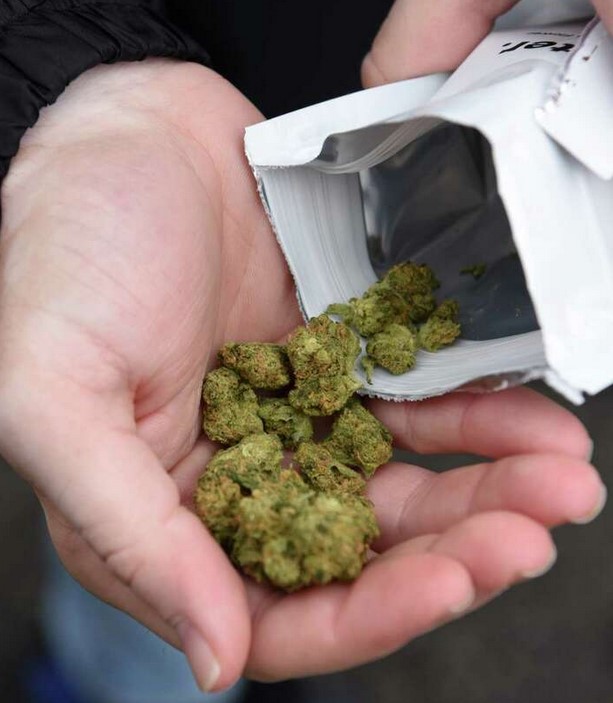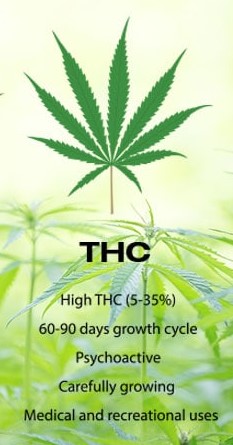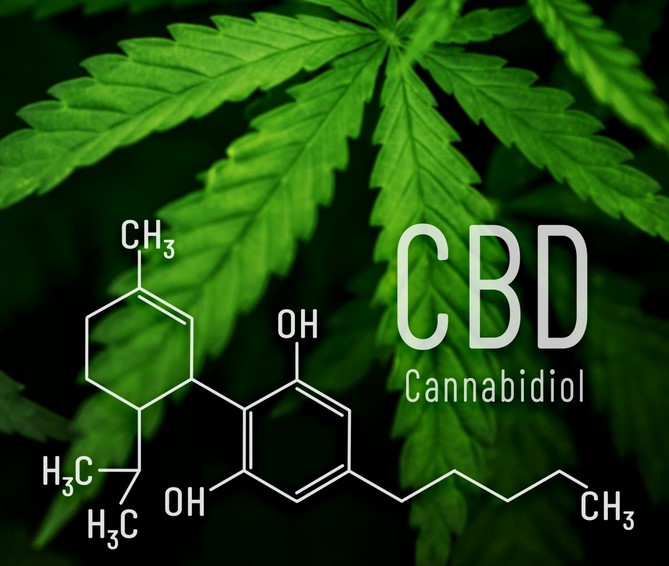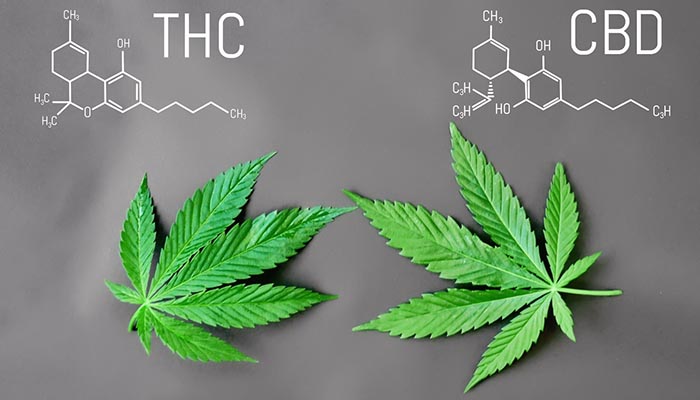According to present understanding, the cannabis plant contains more than 100 chemicals. Cannabidiol (CBD) and tetrahydrocannabinol (THC) are the two most abundant and well-known components of the cannabis plant. Each cannabinoid has particular qualities that may have varied effects on the body. If you’d like to buy CBD or THC oil, use our toronto weed delivery to your home.
The most obvious distinction is that THC makes you feel fantastic, whereas CBD does not. Furthermore, owing to regulatory restrictions, CBD may only be acquired from the cannabis plant in a restricted number of countries.
Hemp and Cannabis

Cannabis and hemp are distinct varieties of the cannabis plant, with only a regulatory distinction between them. Hemp has less than .3 percent THC concentration, whereas cannabis has more than that.
Hemp and cannabis function through the same endocannabinoid system (ECS) in the human body, which regulates their effects. The endocannabinoid system (ECS) is a network of receptors and endocannabinoids that influence them. These components work together to have an impact on a range of important functions, such as pain, hunger, sleep, and so on.
Cannabis also includes a variety of cannabinoids, terpenes, and flavonoids that are good for the body. THC and CBD are by far the most common of these chemicals, with significant research being done on them. But what are they, how do they work, and why are they different from one another?
CBD & THC – The Superstar Cannabinoids
The interest in cannabis has always been focused on THC, so the focus was simply on getting high. Until fairly recently, the majority of people associated cannabis with being high, therefore the attention was only on THC. Researchers have lately discovered CBD and other cannabinoids, suggesting that another approach to understand the therapeutic benefits of marijuana is available. Both THC and CBD are cannabinoids found in cannabis plants, as well as in the crystalline resinous trichomes that cover a mature cannabis flower. Each strain, however, creates different quantities of each chemical.
What is THC & How Does It Work?

THC is the most crucial and popular component in the cannabis plant, what makes individuals high. While a high-THC strain will undoubtedly impact your brain, it may also have therapeutic effects that are sometimes overlooked.
THC activates neurons and generates dopamine when it enters your brain. THC also activates cannabinoid receptors in the brain, which have a variety of functions. While some THC strains provide you with a burst of energy and creativity, other strains offer you a relaxing high as the high takes over your body. Within 10 minutes, especially powerful cannabis strains can cause you to feel dizziness or paranoia. The following are some of the most prevalent effects of THC:
- Increase in appetite
- Drowsiness
- Analgesic
- Relaxation
- Euphoria
What is CBD & How Does It Work?
Cannabidiol (CBD) is a cannabinoid that does not make people high and is often used to cure illnesses since there is no ‘high’ associated with it. While researchers continue to investigate how CBD works in the body, studies show that it interacts with the ECS. CB1 and CB2 are two of the major cannabinoid receptors present in the ECS. The CB1 receptors are primarily found in the brain and play an important role in memory, sleep, mood, hunger, pain sensation, as well as other activities.

Cannabidiol (CBD) has two types of receptors, CB1 and CB2. The endocannabinoid system, which is made up of cannabinoid receptors and endocannabinoids, controls pain, inflammation, mood, memory, appetite, pleasure, movement disorders such as Parkinson’s disease Tremors), depression. THC binds to both kinds of receptors but CBD activates them indirectly by enhancing the amount of endocannabinoids in the body. CBD also inhibits natural endocannabinoid breakdown. Here are a few of CBD’s most typical effects:
- Anti-anxiety
- Anti-convulsant
- Neuroprotective
- Antioxidant
- Anti-inflammatory
THC – Why the High?
When we discuss the intoxicating effects of cannabis, we’re talking about CB1 receptors in the brain and nervous system. THC binds strongly to CB1, while CBD does not. THC is a plug that fits well into a CB1 receptor socket and activates these receptors effectively because it contains a binding site for the endocannabinoid system (ECS).
THC, the most prevalent cannabinoid in cannabis, binds almost exclusively to the CB1 receptor. Furthermore, it partially mimics the ‘bliss molecule’ called anandamide, which is a naturally occurring endocannabinoid. The fact that THC resembles anandamide implies that when it binds to CB1 receptors, it contributes to the euphoric effects of cannabis.
Cannabidiol (CBD) is a poor fit because it inhibits the CB1-activating properties of THC. CBD, in a nutshell, means that THC’s mind-altering effects are reduced. You may experience dizziness or euphoria if you consume cannabis with 22% THC, for example. If it also has 8% CBD, on the other hand, the psychotropic effects will be limited as well as anxiety.
CBD vs. THC: Chemical structure
Cannabidiol (CBD) and delta-9-tetrahydrocannabinol (THC) have the same chemical structure: 21 carbon atoms, 30 hydrogen atoms, and two oxygen atoms. The differences in your body’s response are due to a change in atom arrangement.
Cannabinoids are chemicals that fit the receptors in your brain, causing a euphoric effect. CBD and THC are similar in chemical structure to your body’s endocannabinoids.
The effect of this contact on neurotransmitter synthesis in your brain is apparent. Neurotransmitters are chemicals between neurons that serve a variety of purposes, including pain management, immune function, stress relief, and sleep improvement.
CBD vs. THC: Psychoactive components
Despite the fact that their chemical compositions are comparable, CBD and THC do not have the same psychotropic effects. CBD is psychoactive; however, it isn’t in the manner that THC is. It doesn’t produce the happiness felt with THC. CBD has been found to reduce anxiety, sadness, and seizures.
THC binds to the cannabinoid 1 (CB1) receptors in the brain, producing a feeling of euphoria. CBD has little affinity for CB1 receptors and can’t activate them on its own. In order for CBD to function, THC must bind to CB1 receptors, and it may help minimize some of the harmful psychotropic side effects of THC, such as euphoria or sedation.
CBD vs. THC: Legality
The legal status of cannabis is constantly shifting in the United States. CBD, chemically speaking, remains a Schedule I substance under federal law. Despite being removed from the Controlled Substances Act, hemp has been categorized as a Schedule I narcotic by the Drug Enforcement Administration (DEA) and Food and Drug Administration (FDA).
However, 33 states and the District of Columbia have decriminalized or legalized cannabis-related laws, allowing for high-THC medical marijuana. Several jurisdictions now allow the use of THC and cannabis for recreational purposes. CBD should be able to be found in any place where cannabis is lawful for personal or therapeutic usage.
Before you attempt to buy CBD or THC-infused items, make sure you’re aware of your state’s limitations. If you have cannabis-related items in a state where they’re prohibited or don’t require a medical prescription in states where the goods are legal for medical use, you could be fined or face other legal consequences.
CBD vs. THC: Medical benefits
Cannabinoids CBD and THC are two cannabinoids that have been extensively studied in medicine. They may help with a variety of ailments. CBD, on the other hand, does not produce the same “high” as THC. Due to this unpleasant side effect, some individuals may use CBD rather than THC.
In June 2018, the Food and Drug Administration (FDA) gave its blessing to Trusted Source Epidiolex, the first CBD-based medicine. It’s used to treat rare and difficult-to-treat forms of epilepsy. (Epidiolex is not yet authorized for any of the other conditions listed below.)
CBD is used to help with other various conditions, such as:
- seizures
- inflammation
- pain
- psychosis or mental disorders
- inflammatory bowel disease
- nausea
- migraine
- depression
- anxiety
THC is used to help with the following:
- pain
- muscle spasticity
- glaucoma
- insomnia
- low appetite
- nausea
- anxiety
CBD vs. THC: Side effects
CBD has been shown to have a wide range of therapeutic benefits, including the treatment of diabetes, epilepsy, cancer-related pain and anxiety. It has also been studied for its ability to help with a number of other health issues, including as:
THC causes temporary side effects, such as:
- increased heart rate
- coordination problems
- dry mouth
- red eyes
- slower reaction times
- memory loss
- anxiety
CBD’s side effects may include:
- appetite changes
- fatigue
- weight loss
- dizziness
- diarrhea
Because of the psychotropic components of the medication, the following adverse effects are caused. Neither is deadly. Marijuana dependence, on the other hand, has been linked to long-term mental issues in specific people. This is especially true for youngsters who consume a lot of THC and there isn’t enough evidence that cannabis use causes psychiatric disorders such as schizophrenia.
CBD vs. THC: Drug testing
Cannabinoids, such as THC and CBD, are stored in the fat of the body. On drug tests, they may be detected for days or even weeks after use. nCBD is not able to be detected by all drug tests; however, there are CBD-specific alternatives available. Marijuana usage typically shows up on a testing since it is chemically associated with THC.
Because hemp contains a mix of both cannabinoids, it can also produce THC in addition to CBD. Even if you haven’t used hemp, a test for THC may come back positive. It’s worth noting that items labeled as THC-free might not be.
Why do people talk about THC content in CBD oil if THC and CBD are two different compounds?
Cannabinoids are compounds found in cannabis that bind to cannabinoid receptors. CBD and THC are two of the most well-known cannabinoids in cannabis. Cannabis and hemp produce CBD and THC, which are both present in greater amounts. Cannabis contains a higher level of THC than hemp. The average amount of THC in today’s cannabis strains is approximately 12 percent, according to a reliable source. “THC” was stated by an authentic source.
CBD & THC – Better Together?
The entourage effect is the result of cannabinoids, flavonoids, and terpenes from a cannabis plant being combined. This phenomenon occurs because of the entourage effect; when cannabis’ components are combined, unforeseen benefits may be generated that no single component can provide alone.
Cannabis’ use to treat chronic pain is a fantastic example. THC alone can successfully combat severe pain, but CBD may help with anxiety symptoms that might come with chronic illnesses. The usage of CBD for sleep is becoming increasingly common. Depression, arthritis, anxiety disorders, and headaches have all been found to respond favorably to a mix of THC, CBD, and terpenes.
Legal Status
THC
Uruguay was the first nation in the world to legalize marijuana for recreational use when it did so in 2014. Bill C-45, the Cannabis Reform Act of 2018, went into effect in Canada. This legislation allows individuals to carry up to 30 grams of cannabis on them at any one time. It also permits the sale of cannabis by licensed businesses. In the United States, cannabis is illegal at a federal level. However, it is permitted for recreational usage in certain states.
CBD
The cannabis plant’s extract, which is called cannabidiol (CBD), is a Schedule I narcotic in the United States. It is illegal across the country, however it may be acquired if the manufacturer meets certain requirements and has a THC concentration of less than 0.3 percent.
Final Thoughts on CBD Vs. THC
Because of the Farm Bill’s passage, CBD has become increasingly accessible. CBD products, such as oils and capsules, are now accessible to customers. Early research suggests that CBD can help with a variety of health issues. In fact, CBD may aid Parkinson’s disease patients in managing their symptoms. Future studies may provide more information about CBD and how it could be utilized.
THC, on the other hand, has been linked to a number of health problems. CBD, on the other hand, has been discovered to aid with a range of illnesses. THC, for example, is known to improve symptom alleviation and prevention in one trial.
According to the research, more THC was linked to greater effects, although there was no link between the amount of CBD and symptom relief. Despite its potential benefits, THC has a noticeable influence on perception. Its psychoactive profile may be a disadvantage for some people.
Cannabis has been shown in studies to possess considerable potential as a treatment for Alzheimer’s disease, Parkinson’s disease, pain, and many other ailments. According to the World Health Organization (WHO), Delta-8 THC and CBD can help with a range of issues when used together, including multiple sclerosis. One theory for the success of whole-plant cannabis is that it can counteract the psychoactive effects of THC.
Cannabidiol (CBD) and tetrahydrocannabinol (THC) have medicinal purposes, as well. They’re also both considered safe, but keep in mind any potential side effects or interactions with other medicines you’re taking. Before using it, talk to your doctor or a knowledgeable cannabis or CBD expert to ensure that you understand the dangers involved.
As the number of CBD and THC studies increases, a greater knowledge of how each chemical may benefit clients might be more clearly discussed and evaluated.
